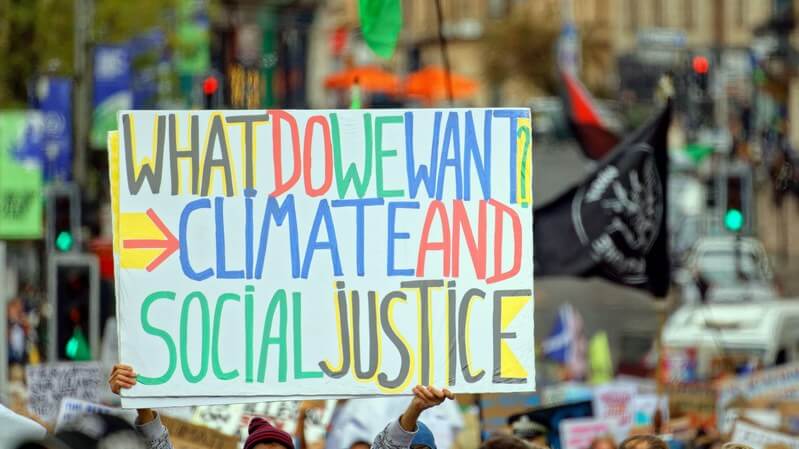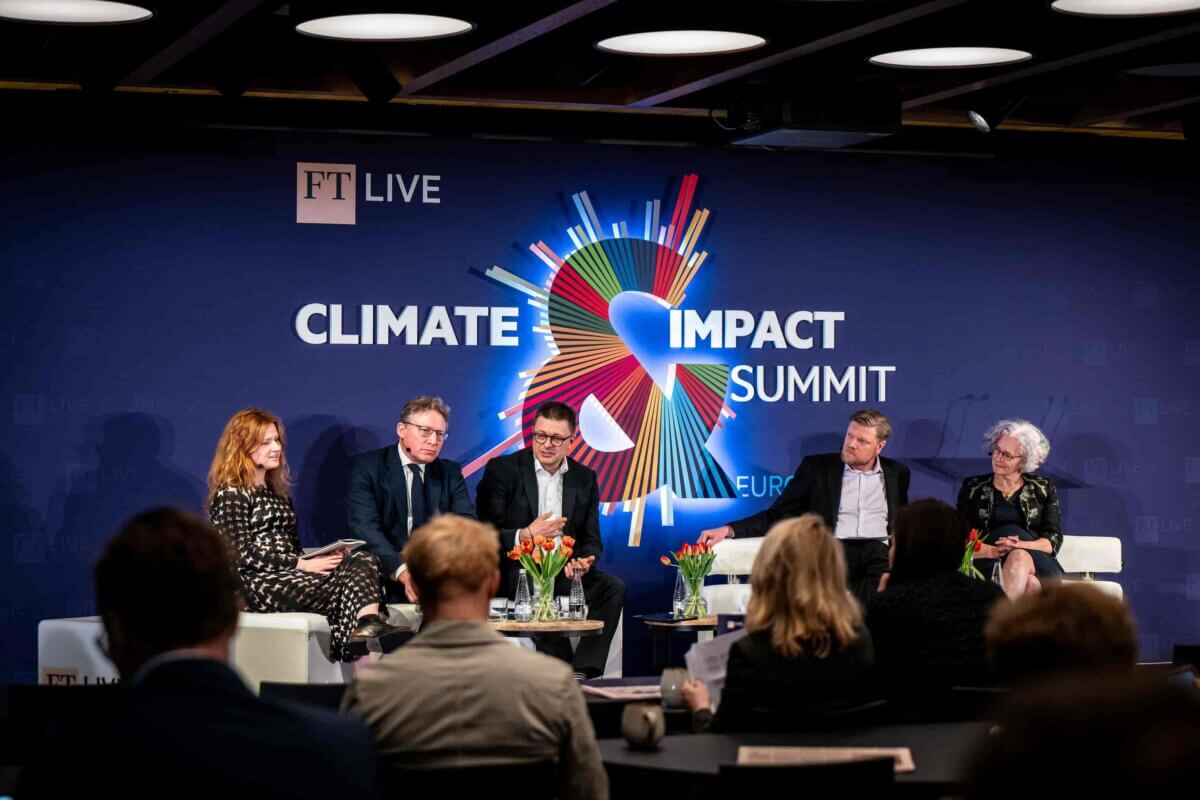COP26: From Last Best Hope To Least Worst Outcome

Our Sustainability Lead, Alison Vipond shares her personal reflections on COP26.
Hopes were high for COP26.
Would world leaders finally wake up and take urgent action to put the world on a safe and secure path?
No, there is a gaping chasm between the national commitments that have been made and what needs to be done to reduce greenhouse gases to avoid global heating exceeding 1.5°C of heating.
But good things have come out of COP26. Perhaps the most important thing is that determination and momentum that have been lacking since the Paris Climate Agreement in 2015 are now reignited. There has also been a global awakening. We all have a stake in climate action, not just politicians.
In my role as Sustainability Lead at Ecology Building Society, COP26 has been intense. Tackling the climate and ecological emergency is central to Ecology’s 2030 Strategy which we’re launching to coincide with COP26. We’ve also been joining in events with Architects for Climate Action and the UK Green Building Council on the retrofit, embodied carbon, net zero and the built environment; working with partners in the Net-Zero Banking Alliance; and publishing, as part of PCAF UK, our work on measuring emissions for residential property, which is essential for net-zero plans.
Climate change is not some distant threat, it is happening now. It is the poorest countries that are already experiencing the worst damage from a changing climate. This is not of their making – climate change has been caused by wealthy countries, burning fossil fuels to fuel their economies and development. Global temperatures are already one degree hotter than pre-industrial times. The IPPC scientists indicate that global greenhouse gas emissions need to be reduced by 45% from 2010 levels by 2030, as an interim target to net zero by 2050. Analysis by Carbon Tracker showed ‘even with all the new pledges and sectoral initiatives for 2030, global emissions are still expected to be almost twice as high in 2030 as necessary for a 1.5°C pathway’.
The watering down of language in the final legal text, the Glasgow Climate Pact, is bitterly disappointing, from phasing ‘out’ to phasing ‘down’ coal. But it is still a very significant achievement that coal features explicitly, when previous influence by the fossil fuel lobby has meant fossil fuels were left out of legal texts. Agreement to include a ratchet mechanism is also a powerful achievement and will be a lasting legacy of COP26. The ratchet mechanism commits leaders to return next year, with revised emission targets. We need to keep up the pressure for targets to be strengthened, and for fossil fuels to be phased out.
Despite the howling gap between the sum of national targets and what is needed, COP26 has spurred an increase in climate diplomacy, demonstrated by the welcome announcements on coal, methane, deforestation, clean technology, finance, transport and cities. COP26 has catalysed new agreements to work together. The US and China, the world’s largest emitters of carbon dioxide, have pledged to work together. Although lacking in details, that pledge is symbolic of the need for the largest emitters to be accountable. Also, new alliances have been created, such as the Glasgow Alliance for Net Zero (GFANZ) – a global coalition of financial institutions committed to net zero by 2050, and the Beyond Oil and Gas Alliance – a group of countries leading the way towards ending future oil and gas production within their borders (which depressingly, the UK has not joined). Collaboration is essential – for example, it is only when all finance becomes ‘green’ that the flow of finance into new oil and gas will be shut off. Collaboration should also accelerate change, through the sharing of resources and ideas, and through creating pressure for laggards who fear being left behind.
The activities outside of the conference negotiations have given me the greatest hope. As well as critical climate talks, COP26 has created a vibrant, global sustainability festival, enabling people to connect in Glasgow, around the world and online, to share insights, make new connections and create new thinking and approaches. COP26 has led to climate justice activists including Greta Thunberg and Vanessa Nakate galvanising support from around the world, driving a surge in public awareness, which in turn leads to accountability for governments and businesses to turn their promises into action.
I believe that we can achieve anything if we work collaboratively together with mutual respect and determination. Now that exhausted negotiators and delegates have returned home for a well-earned rest, and when the media attention diminishes, we’ve got to make sure all the good things started at COP26 keep going, gather pace and achieve results. All eyes on COP27.
Main photo: Climate change march, Glasgow, Fri 5 Nov 2021 during COP26 (credit: Gerard Ferry / Alamy Stock Photo)



